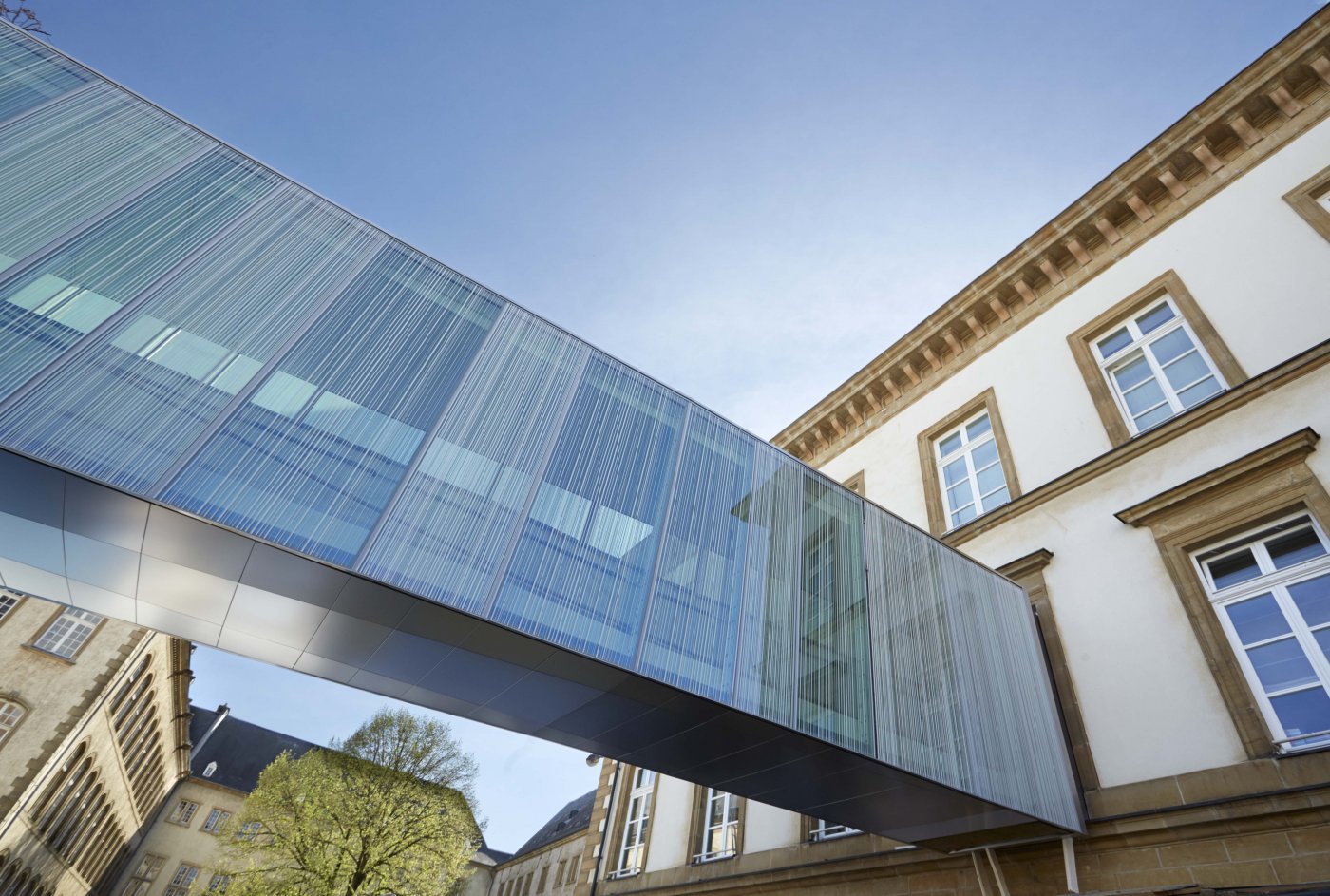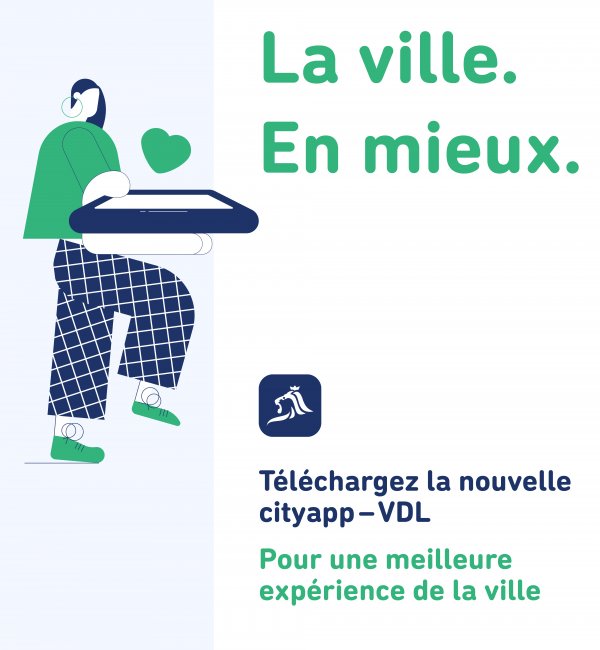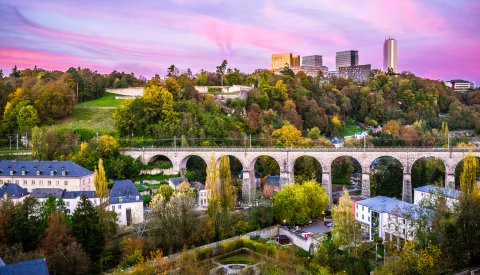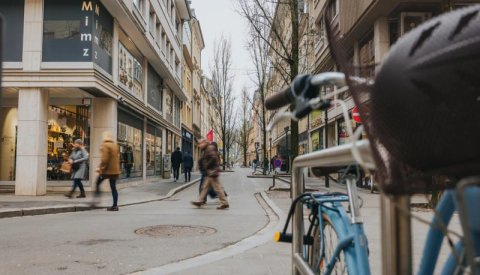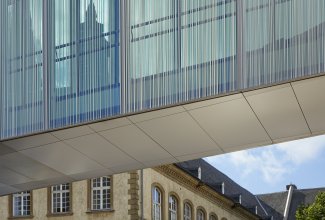Healthy eating
Just 50 to 100 m² of garden space is enough to completely meet the fruit and vegetable needs of one person. With more than 250 hectares of private gardens, allotment gardens and orchards, and some 1,100 hectares of farming land, Luxembourg City's 115,000 or so residents could be self-sufficient – at least theoretically.
However, most meals are purchased or eaten at restaurants or in school and company canteens, and this has a significant impact on the environment and people's health. The City of Luxembourg tries to actively promote healthy eating by using organic and seasonal produce in meals for children, rejecting the use of GMOs and pesticides, and supporting allotment garden projects.
ECOlogique no. 1 2011 – "Alimentation saine" offers more detailed information about how to maintain a healthy diet (in French only).
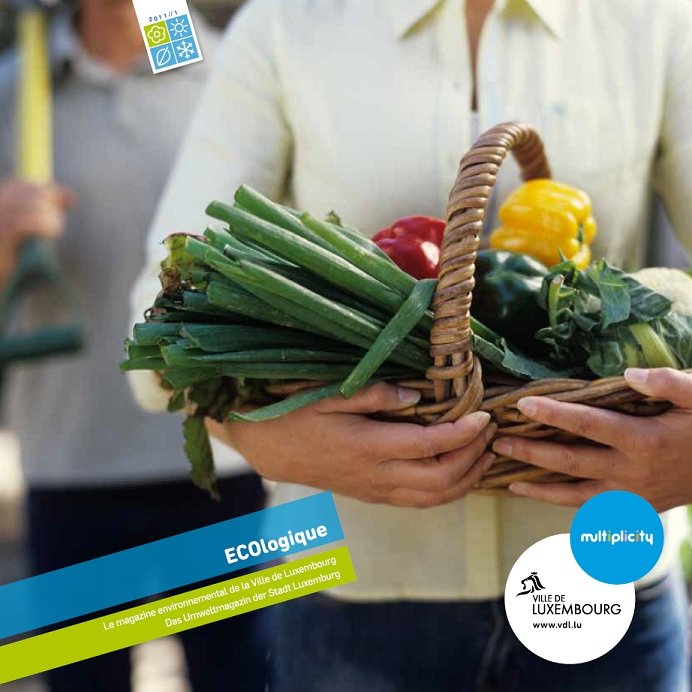
Health
Pesticides
Deciding what foods you eat means making choices for your health, for society and for the environment. For example, when you eat organic foods, you take care of your health by consuming fewer pesticides. The effects are real: there is an established link between the risk of allergies and the pesticides and other chemicals that find their way into our bodies through the food we eat, the cosmetics we use, the clothes we wear, and even our environment.
For more information, go to the "Promoting biodiversity" section, as well as the website of the Ouni Pestiziden campaign (www.ounipestiziden.lu).
Environment
Climate
Nowadays, we know that our eating habits have a direct impact on greenhouse gas emissions (especially CO₂), pollution and the overuse of groundwater. Transport costs for imported non-seasonal products and the production of meat both release greenhouse gases into the atmosphere. When you buy products that are sourced locally, you reduce transport-related greenhouse gas emissions. If you also choose organic foods, you support a type of agriculture that has less of an impact on farmland.
Biodiversity
Insects, birds and aquatic animals are seriously affected by the use of pesticides in conventional agriculture. While profitable, single-crop farming is more susceptible to pathogens and requires greater use of pesticides. Other issues include the overuse of groundwater for the production of vegetables in hothouses and the planting of genetically modified (GM) crops. GM crops tend to replace the plants naturally present in our ecosystem and, along with pesticides and single-crop farming, pose a threat to biodiversity.
Social consciousness
With Fairtrade certified products, you can enjoy a clear conscience when indulging in your "guilty pleasures", because these items are produced under decent working conditions by farmers who receive fair prices for their harvest without the use of child labour: what products you choose to buy can have a measurable impact halfway around the world.
Eco-friendly practices
You too can act to protect the environment:
- Limit your consumption of meat and prepared meat products, and you will reduce greenhouse gas emissions.
- Go vegetarian at least one day a week.
- Are you a meat lover? No problem! Choose chicken. Poultry production is far less polluting than ruminant meat production.
- Eat fresh, seasonal produce, which is cheaper and tastier. Opt for locally sourced products.
- Avoid buying foodstuffs that need to be imported by air.
- Drink tap water, which is of excellent quality in Luxembourg City.
- Remember that eating fish is good for your health. Try to buy fish that is raised or caught using sustainable methods and bears the Marine Stewardship Council (MSC) logo.
- Limit packaging and buy beverages in returnable glass bottles.
- Test your environmental footprint at www.footprintnetwork.org.
- Seasonal calendar (in German and French only) – Ministry of Agriculture, Viticulture and Consumer Protection (Ministère de l'Agriculture, de la Viticulture et de la Protection des consommateurs)
